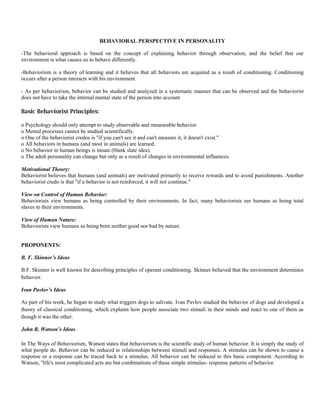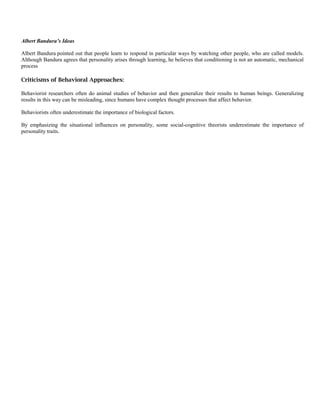Behaviorism is a theory that behavior can be studied scientifically without reference to internal mental states. Behaviorists believe that all behaviors are learned through conditioning or observation of others. Some key behaviorist theorists include B.F. Skinner who developed principles of operant conditioning, Ivan Pavlov who discovered classical conditioning in dogs, and John B. Watson who argued behaviorism should study observable human behavior and its relationships to stimuli and responses. Behaviorists view humans as being controlled by their environments and neither inherently good nor bad by nature. However, behaviorism has been criticized for overgeneralizing from animal studies to humans and underestimating biological and cognitive influences on personality.

